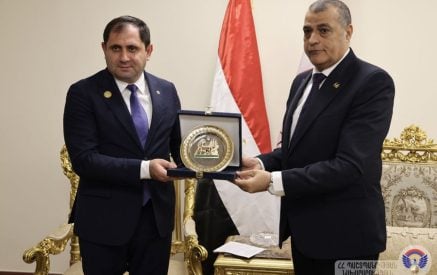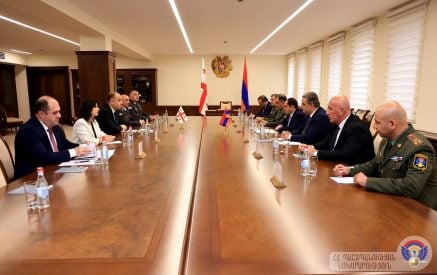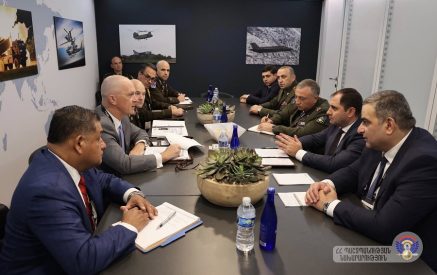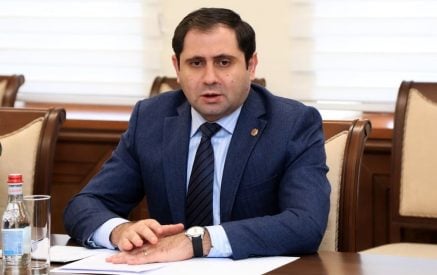Tehran can prevent the continuation of the war, at least in the short term, through diplomatic initiative and mediation mission
A number of new clashes took place between Armenia and Azerbaijan in Movses village of Tavush region during 12.07.2020. Such clashes are unprecedented after the cessation of the April 2016 war, as they took place outside the territory of the Artsakh Republic and inside the state borders of the Republic of Armenia. There were signs of border fires only a few months ago, when the rhetorical war between the two sides was growing.
During the recent opening ceremony of a military center, the President of the Republic of Azerbaijan Ilham Aliyev said that «the capital of Armenia is part of the historical lands of his country», which in this case can be considered a serious threat.
The significance and difference of the recent clashes with similar cases lies in their geographical location, as recently the issue of the so-called disputed territories claims has gone beyond the geographical scope of the conflict, including regions such as the Tavush region and the city of Yerevan. This policy of official Baku will stop the whole negotiation process and in practice, it is aimed at completely withdrawing from the negotiations.
Read also
Border-territorial disputes between the former Soviet republics have always existed, but for the most part those differences have been forgotten or settled. Currently, the development of border disputes between the two sides over small territories inherited from the Soviet period hinders the resolution of the main conflict and the establishment of peace in the region.
In the USSR, Stalin pursued a special policy of keeping local differences active and alive by changing the boundaries between ethnic groups and turning Moscow into a final instance for resolving them. If even today the former Soviet republics do not accept the current state of the borders and pursue the goal of expanding them for romantic reasons, then the fire of war in the region will never be extinguished; difficulties will be created for the neighbors.
Although Aliyev’s repeated statements on the annexation of Yerevan to the Republic of Azerbaijan are inspiring for the Azerbaijanis, they are not aimed at creating a friendly atmosphere at all, which is a necessary condition for resolving any geopolitical conflict.
After the collapse of the USSR, the South Caucasus turned into an unstable zone, where there is a possibility of a collision at any moment. The feature of unstable zones is the possibility of rapid outbreaks of conflicts and their spread to other regions, therefore, if the conflicts are not resolved or controlled, there will be grounds for the conflict to turn into an international crisis. Although after Nikol Pashinyan came to power in Armenia, there were speculations about making concessions on the opposite side of the conflict, he aggravated the situation in Baku when he raised the issue of the return of the representative of the Artsakh Republic to the negotiating table. Baku is not ready for the participation of the Artsakh representative in the talks, as, obviously, they approach the issue more strictly.
The presidential elections of April 2020 in the Artsakh Republic, and then the assumption of the post of the newly elected president, provoked the anger of Baku. It should be noted that the opposition parties of the Republic of Azerbaijan also accuse the current government of inaction in the clashes. On the other hand, the large military expenditures have raised certain expectations in the political circles of Baku.
At the same time, the balance of power between the parties is maintained. Russia and the United States are working to maintain balance through financial assistance from both sides. IRI also pursues a balanced policy in this regard. It is obvious that military methods are no longer suitable tools for resolving the conflict, the best solution is still negotiations. Nevertheless, Baku has practically left the negotiating table, reaffirming its desire for a military solution to the conflict.
The reality is that both sides are still far from a final solution to the conflict, as there is no good-neighborly atmosphere, no possibility of geographical division between the parties, and no apparent imbalance of power.
At this phase, war must be ruled out, and the conflict must be managed in a «frozen» state until conditions change.
Experience has shown that the military way is not effective for Baku. Neither the military escalations in April 2016 nor in August 2019 did not contribute to the solution of the issue, they had only zero benefit for Baku.
The Islamic Republic of Iran has a balanced position on this conflict, which has led to an increase in trust in Iran on both sides. Iran does not have a one-sided approach like Turkey, but is in favor of a peaceful solution to the conflict, officially announcing the negotiated settlement of the conflict without the intervention of extra-regional forces.
Thus, Tehran can prevent the continuation of the war, at least in the short term, through diplomatic initiative and mediation mission.
Salar Seyfoddini
Senior Expert, Center for Caucasus Studies, IRI



























































